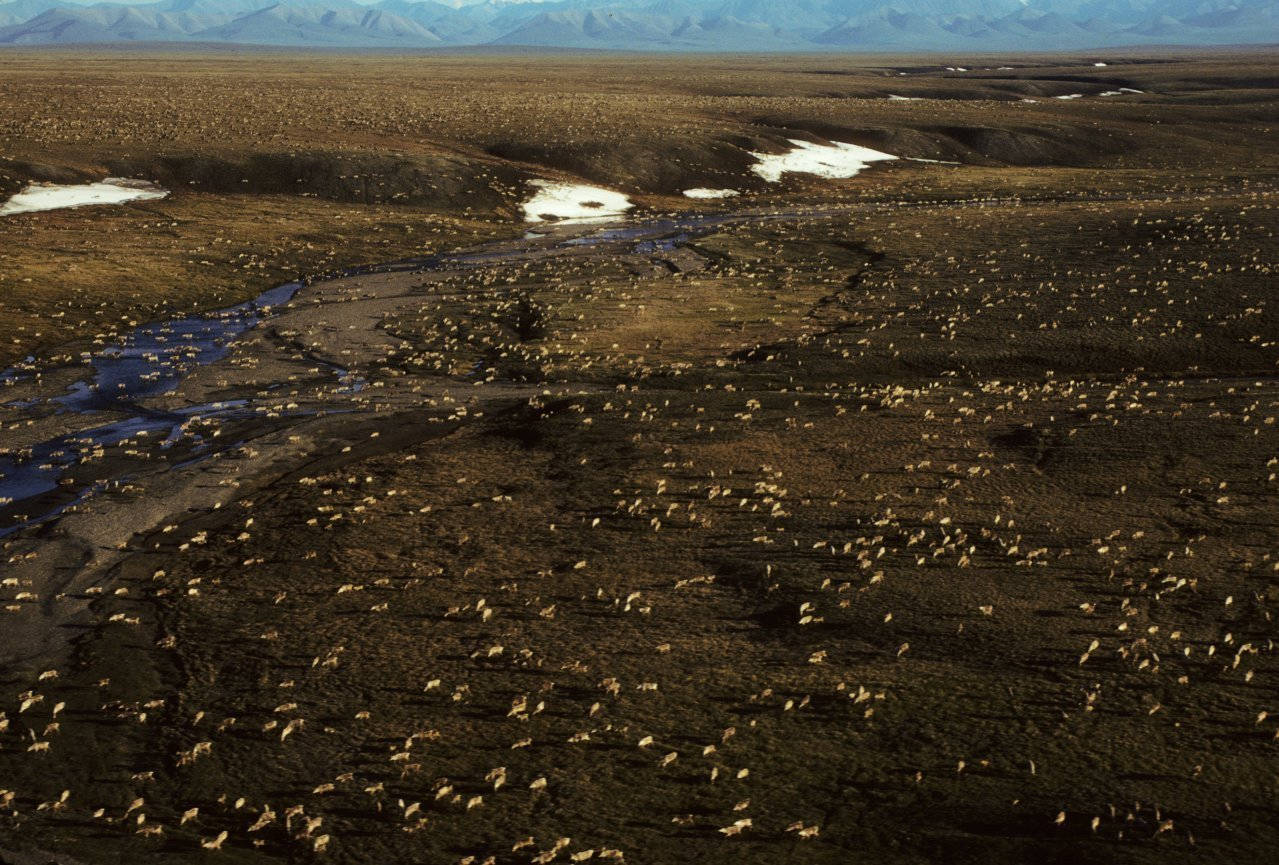By Matthew Daly
Associated Press
WASHINGTON — The Biden administration on Tuesday suspended oil and gas leases in Alaska’s Arctic National Wildlife Refuge, reversing a drilling program approved by the Trump administration and reviving a political fight over a remote region that is home to polar bears and other wildlife — and a rich reserve of oil.
The order by Interior Secretary Deb Haaland follows a temporary moratorium on oil and gas lease activities imposed by President Joe Biden on his first day in office. Biden’s Jan. 20 executive order suggested a new environmental review was needed to address possible legal flaws in a drilling program approved by the Trump administration under a 2017 law enacted by Congress.
After conducting a required review, Interior said it “identified defects in the underlying record of decision supporting the leases, including the lack of analysis of a reasonable range of alternatives” required under the National Environmental Policy Act, a bedrock environmental law.
The remote, 19.6 million-acre refuge is home to polar bears, caribou, snowy owls and other wildlife, including migrating birds from six continents. Republicans and the oil industry have long been trying to open up the oil-rich refuge, which is considered sacred by the Indigenous Gwich’in, for drilling. Democrats, environmental groups and some Alaska Native tribes have been trying to block it.
Environmental groups and Democrats cheered the Interior Department order, while Alaska’s all-Republican congressional delegation slammed it as misguided and illegal.
The U.S. Bureau of Land Management, an Interior agency, held a lease sale for the refuge’s coastal plain on Jan. 6, two weeks before Biden took office. Eight days later the agency signed leases for nine tracts totaling nearly 685 square miles. However, the issuance of the leases was not announced publicly until Jan. 19, former President Donald Trump’s last full day in office.
Biden has opposed drilling in the region, and environmental groups have been pushing for permanent protections, which Biden called for during the presidential campaign.
The administration’s action to suspend the leases comes after officials disappointed environmental groups last week by defending a Trump administration decision to approve a major oil project on Alaska’s North Slope. Critics say the action flies in the face of Biden’s pledges to address climate change.
The Justice Department said in a court filing that opponents of the Willow project in the National Petroleum Reserve-Alaska were seeking to stop development by “cherry-picking” the records of federal agencies to claim environmental review law violations. The filing defends the reviews underpinning last fall’s decision approving project plans.
Kristen Miller, acting executive director of the Alaska Wilderness League, hailed suspension of the Arctic leasing program, which she said was the result of a flawed legal process under Trump.
“Suspending these leases is a step in the right direction, and we commend the Biden administration for committing to a new program analysis that prioritizes sound science and adequate tribal consultation,” she said.
More action is needed, Miller said, calling for a permanent cancellation of the leases and repeal of the 2017 law mandating drilling in the refuge’s coastal plain.
The drilling mandate was included in a massive tax cut approved by congressional Republicans during Trump’s first year in office. Republicans said it could generate an estimated $1 billion over 10 years, a figure Democrats call preposterously overstated.
Sen. Maria Cantwell, D-Wash., a longtime opponent of drilling in the refuge, accused the Trump administration of trying to “shortcut environmental laws.” The effort “fell apart when exposed to the facts that federal scientists say Arctic Refuge drilling cannot be done safely and oil companies don’t want to drill there,” Cantwell said.
“Now it is up to Congress to permanently protect this irreplaceable, million-year-old ecosystem and facilitate new economic opportunities based on preserving America’s pristine public lands for outdoor recreation,” she said.
Bernadette Demientieff, executive director of the Gwich’in Nation Steering Committee, said in a statement that tribal leaders are heartened by the Biden administration’s “commitment to protecting sacred lands and the Gwich’in way of life.”
She thanked Biden and Haaland “for hearing our voices and standing up for our human rights and identity.”
In a joint statement, Alaska Sens. Dan Sullivan and Lisa Murkowski, along with Rep. Don Young and Gov. Mike Dunleavy, criticized the Interior Department action. All four are Republicans.
Dunleavy said the leases sold in January “are valid and cannot be taken away by the federal government.”
Sullivan, who praised Biden last week for backing the Willow oil project, said suspending the Arctic leases “goes against the law, facts, the science and the will of the Native communities on the North Slope. It is nothing more than a naked political move by the Biden administration to pay off its extreme environmental allies.”
Murkowski called the order expected “but outrageous nonetheless.”
Murkowski, who provided a key vote for Haaland’s confirmation in March, said the secretarial order “is in direct conflict with the 2017 Tax Cuts and Jobs Act,” which “specifically states that the purpose of the (designated) area of ANWR is oil and gas development.”
“This action serves no purpose other than to obstruct Alaska’s economy and put our energy security at great risk,” Murkowski said.

